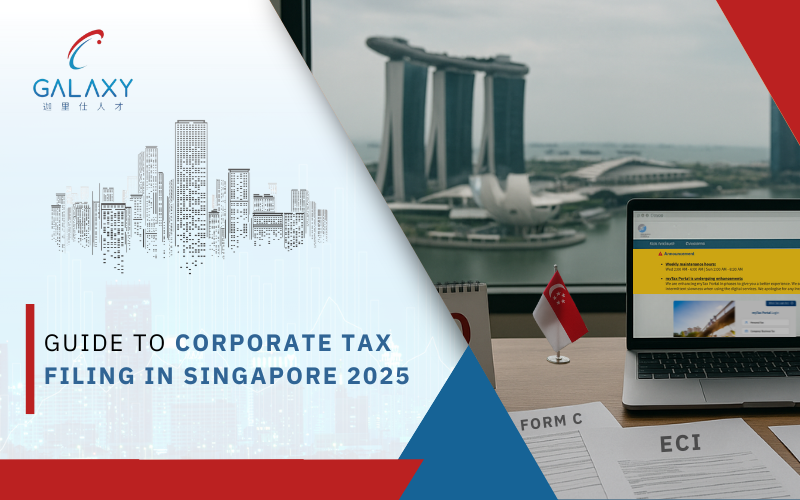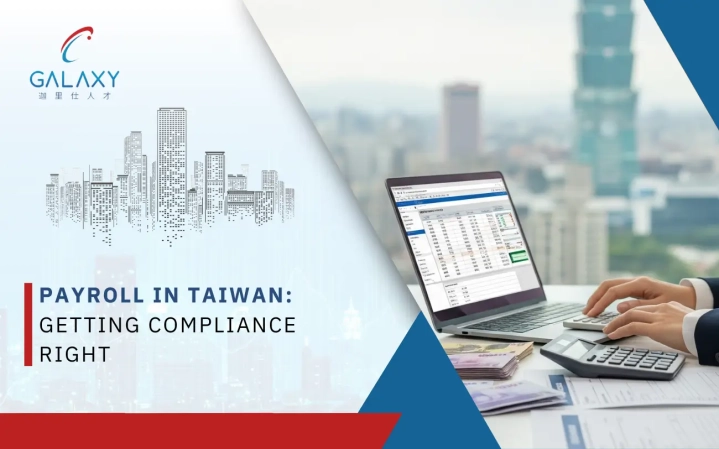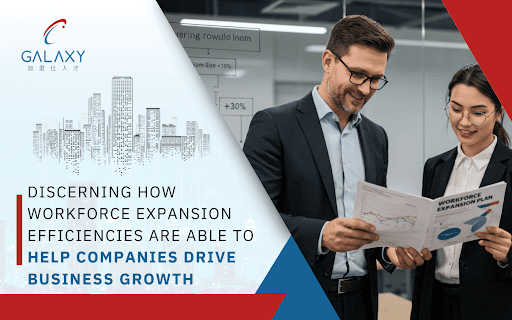Guide to Corporate Tax Filing in Singapore 2025

As we enter the second half of 2025, businesses in Singapore must begin preparing for corporate tax filing for the Year of Assessment (YA) 2025. Compliance with IRAS is more than a legal obligation—it is central to sound business governance for both start-ups and established enterprises.
This year brings key changes, including enhancements to the filing process and new digital tools from IRAS that simplify compliance. By preparing early, businesses can ease the pressures of tax season and manage their obligations with confidence.
In this blog, we outline essential deadlines, required forms, recent IRAS updates, and common mistakes to avoid. We also consider how partnering with a professional tax and accounting firm can streamline filing and provide valuable strategic insights.
Table Of Content
- Overview of Corporate Tax Filing in Singapore
- Key Updates from IRAS for Year of Assessment (YA) 2025
- What Are the Key Corporate Tax Filing Deadlines for 2025?
- Choosing the Right Tax Form
- How to Avoid Common Corporate Tax Filing Pitfalls in Singapore?
- How Does a Tax and Accounting Firm Add Value Beyond Compliance?
- Corporate Tax Filing Checklist
- Conclusion
- Frequently Asked Questions
Overview of Corporate Tax Filing in Singapore
In Singapore, corporate tax filing is a statutory obligation for all registered companies. Businesses are required to file their income tax returns with the Inland Revenue Authority of Singapore (IRAS), declaring chargeable income—profits after deducting allowable business expenses.
Although the corporate tax rate is fixed at 17%, many organisations benefit from partial exemptions, rebates, and government incentives that effectively reduce their overall tax liability. This favourable tax framework continues to position Singapore as an attractive destination for regional headquarters and international investors.
The process typically includes three key steps:
1. Submitting Estimated Chargeable Income (ECI)
An early estimate of taxable income, usually due within three months after the financial year ends, unless exempted.
2. Choosing the Correct Tax Form
Companies must file either Form C-S, Form C-S (Lite), or Form C based on their revenue and business type to ensure proper submission.
3. Meeting Filing Deadlines
Timely filing is crucial to avoid penalties and maintain compliance.
Making tax filing part of regular financial management not only simplifies the process but also helps businesses optimise cash flow and access government benefits. Seeing tax filing as a strategic concern instead of a mundane task can enhance your business’s financial well-being and bolster its position in Singapore’s corporate ecosystem.
Key Updates from IRAS for Year of Assessment (YA) 2025
The Inland Revenue Authority of Singapore (IRAS) implements changes every Year of Assessment (YA) that may have an impact on how businesses handle deductions, file taxes, and apply for reliefs. It’s critical to stay up to date on these changes to maximise your tax position, prevent surprises, and stay in compliance.
The following summarises the key changes for YA 2025 that companies need to know about:
Revised Income Tax Treatment
1. Capital Allowances: Low-value assets (under S$5,000) can now be fully expensed in the year of purchase, simplifying capital allowance claims.
2. FSIE Regime: Foreign-sourced dividends, branch profits, and service income must meet enhanced economic substance criteria to qualify for tax exemption.
3. Documentation Requirements: Stricter rules on documentation and classification for asset purchases and expense claims are now in effect to ensure compliance.
Enhanced Digital Filing Requirements
1. From this year, IRAS requires all companies to submit corporate tax returns exclusively through the myTax Portal.
2. Paper submissions are no longer accepted, streamlining the filing process.
3. Digital filing reduces errors and enhances accuracy.
4. Online submissions enable faster processing, improving overall tax administration efficiency.
New Guidance and Clarifications
1. IRAS has updated its e-Tax Guides to make it easier to identify deductible expenses.
2. Employee benefits, entertainment, and R&D expenses are a key focus.
3. These updates help businesses stay compliant and claim all eligible deductions.
4. Clarifications on start-up tax exemptions now cover mergers, acquisitions, and restructuring.
5. Understanding these changes helps businesses plan taxes better and avoid compliance issues.
As Singapore’s government adjusts to new policies and the economy, tax laws frequently change. Maintaining IRAS updates enables your company to maximise tax benefits, stay in compliance, and steer clear of expensive mistakes.
Simply put, being informed offers you the opportunity to save money, expedite your procedures, and feel secure knowing that your tax returns are accurate—it’s not just about fulfilling regulations.
What Are the Key Corporate Tax Filing Deadlines for 2025?
Timely corporate tax filing in Singapore is more than a procedural requirement; it is a fundamental aspect of sound corporate governance. Missing a deadline can disrupt financial operations and expose businesses to penalties, interest charges, or enforcement action from the Inland Revenue Authority of Singapore (IRAS). For the Year of Assessment (YA) 2025, the first step towards compliance is a clear understanding of the filing timeline.
| Filing Item | Deadline |
|---|---|
| Estimated Chargeable Income (ECI) | Within 3 months of the end of the financial year |
| Form C, Form C-S, or C-S (Lite) | 30 November 2025 |
Understanding the Deadlines
1. Estimate Chargeable Income(ECI)
Non-exempt companies must submit their ECI within three months of the end of their fiscal year (FYE).
IRAS receives an early indication of your company’s taxable income for the year from this estimate. Unless your business is eligible for an administrative waiver, the ECI must be submitted even if your estimated income is zero.
2. Form C, C-S, or C-S (Lite)
This is the yearly income tax return for your business. After your financial statements are finalised, they need to be filed.
Larger or more complex businesses may need to use the complete Form C, but the majority of companies are eligible to file the simplified versions, Form C-S or C-S (Lite).
The submission deadline is November 30th, regardless of your FYE.
Managing Your Filing Timeline and Staying Compliant
On-time corporate tax filing keeps your company in compliance and helps you avoid needless fines.
The tax year is determined by your Financial Year-End (FYE). For instance, your income is assessed in YA 2025 if your FYE is December 31, 2024. Planning makes filing go more smoothly.
You can update your Estimated Chargeable Income (ECI) within IRAS’s timeframe if your income projections change after you’ve submitted it. By doing this, overpayment or underpayment can be prevented.
A Notice of Assessment (NOA) will be sent by IRAS following filing. Usually, you have one month to pay. GIRO is widely used by businesses to distribute payments and control cash flow.
Missing deadlines can trigger estimated assessments, penalties of up to $1,000, and in severe cases, legal action. Staying organised and filing on time protects your business and keeps things running smoothly.
Choosing the Right Tax
Form
IRAS provides three distinct tax return forms, each tailored to different business profiles. Choosing the appropriate form streamlines compliance, minimises administrative burden, and reduces the likelihood of unnecessary correspondence with the tax authority.
A Quick Breakdown of the Tax Forms
| Form | Who It’s For | What It Involves |
|---|---|---|
| Form C | Any company, regardless of size | The most detailed option. You’ll need to submit full financials and supporting documents. |
| Form C-S | Companies earning SGD 5 million or less | A simpler version. Financial statements are only required if IRAS asks. |
| Form C-S (Lite) | Smaller companies earning SGD 200,000 or less | The easiest form. Minimal reporting. Great for tiny, straightforward businesses. |
How to Choose the One That Fits?
Here’s what to think about when deciding which form to use:
1. How much revenue you’re making: This helps determine if you qualify for the simplified options.
2. How complex your business is: If you’ve got overseas income, multiple entities, or a group structure, you’ll likely need to file the complete Form C.
3. How ready your documents are: If your financials aren’t finalised, a simplified form may be more practical (as long as you qualify).
Getting the form right from the start helps avoid delays, extra paperwork, or questions from IRAS later on. It’s a small but essential step toward an easier tax season.
How to Avoid Common Corporate Tax Filing Pitfalls in Singapore?
| Pitfall | Why It Matters | How to Stay on Track |
|---|---|---|
| Disorganised Records | Incomplete or inaccurate records can lead to filing mistakes and missed deductions. | Maintain up-to-date accounts and reconcile them regularly. |
| Missed Deadlines | Late ECI or Form C/C-S submissions can lead to penalties and compliance issues. | Follow a clear filing calendar and prepare documents ahead of time. |
| Incorrect Tax Form | Using the wrong form can delay processing and require resubmission. | Review the IRAS criteria each year to ensure the correct form is used. |
| Ineligible Claims | Claiming deductions you don’t qualify for may trigger audits or repayments. | Verify all claims against the latest IRAS guidelines before filing. |
| Skipping Final Review | Unchecked submissions may contain avoidable mistakes. | Always conduct a thorough pre-submission review. |
How does a Tax and Accounting Firm Adds Value Beyond Compliance?
For many organisations, working with a tax or accounting firm is often viewed as a procedural necessity—ensuring returns are filed accurately and compliance requirements are met. However, the right firm can serve as a genuine strategic partner, delivering far more than regulatory assurance.
1. Strategic Tax Planning That Looks Ahead
Advisors go beyond preparing returns by identifying opportunities to minimise tax liabilities while remaining fully compliant with IRAS guidelines. Examples include:
- Research and Development (R&D) tax benefits to encourage innovation
- Productivity and Innovation Credit (PIC) schemes to enhance efficiency
- Double Tax Deduction for Internationalisation (DTDi) for expanding into overseas markets
Proactive tax planning ensures decisions are integrated into the broader business strategy rather than addressed only at filing time.
2. Staying Ahead of Regulatory Changes
Singapore’s tax laws are still changing. A professional firm ensures compliance while optimising available benefits by staying up to date on legislative updates, including modifications to filing requirements and new incentives.
3. Expertise in Structuring and Complex Transactions
Corporate restructuring, inter-company dealings, and cross-border taxation require careful planning. Experienced advisors design tax-efficient, compliant structures that minimise risks and optimise financial outcomes.
4. Enhancing Operational Efficiency
Time and effort are frequently required for tax management, particularly during hectic filing seasons. By collaborating with a capable company, internal teams can concentrate on long-term growth and key business priorities. These businesses can increase accuracy, streamline submissions, and produce reports more quickly and clearly with the help of contemporary digital tools.
5. Supporting Growth and Transformation
During expansion, restructuring, or entry into new markets, having access to specialised expertise provides clarity and confidence in decision-making. Advisors assist in foreseeing difficulties, coordinating plans with corporate objectives, and laying the groundwork for sustained success.
Filing taxes is just the starting point. The real value comes from having a partner who is proactive, insightful, and committed to helping your business thrive.
Corporate Tax Filing Checklist
There is no need for a last-minute, hectic rush when filing corporate taxes. The entire process becomes more accurate, less stressful, and more seamless with a well-defined procedure and consistent preparation. To help tax teams stay on course from beginning to end, this checklist divides the procedure into manageable steps.
| Stage | Key Actions | Deadline / Notes |
|---|---|---|
| Pre-Filing Preparation | ✅ Finalise audited or unaudited financial statements in accordance with reporting standards. ✅ Verify that revenue, expenses, and adjustments are accurate and complete. ✅ Calculate Estimated Chargeable Income (ECI) using the most recent financial data. ✅ Prepare supporting schedules for capital allowances, donations, and other relevant deductions. | Submit ECI via myTax Portal within 3 months after the financial year-end. |
| Form Selection | ✅ Determine eligibility for Form C-S or C-S Lite, based on revenue and qualifying conditions. ✅ Select Form C for businesses with complex income sources, overseas operations, or group structures. | Review IRAS eligibility criteria annually to ensure correct form selection. |
| During Filing | ✅ File the corporate tax return exclusively via myTax Portal. ✅ Include all required schedules, declarations, and documentation in a single submission to prevent delays. | Filing deadline: 30 November 2025. |
| Avoiding Common Pitfalls | ❌ Delaying preparation until the last minute. ❌ Submitting the wrong form and requiring resubmission. ❌ Omitting necessary supporting documents. | These errors can lead to penalties, processing delays, and additional compliance scrutiny. |
| Post-Filing Follow-Up | ✅ Monitor IRAS communications and respond promptly to any clarifications requested. ✅ Archive all submission confirmations, computations, and schedules for reference or audit purposes. ✅ Arrange timely payment within one month of the Notice of Assessment to avoid late payment penalties. | Payment is due within 1 month of receiving the NOA. |
conclusion
A well-managed tax filing process in Singapore does more than ensure compliance—it supports financial clarity and builds confidence with stakeholders.
To prepare for YA 2025, businesses should stay updated on IRAS requirements, keep records in order throughout the year, and choose the correct return form well in advance. Early preparation reduces the risk of errors and helps ease the pressures of tax season.
With its expertise in corporate tax and cross-border compliance, Galaxy Group guides businesses through every stage, from planning and filing to follow-up. By offering tailored strategies, detailed reviews, and practical support, the team helps organisations meet their obligations smoothly while keeping future growth in focus.
A structured, forward-looking approach not only ensures compliance but also strengthens financial resilience and long-term sustainability.
Stay Ahead This Tax Season
Get expert tax and accounting support to ensure timely, accurate, and hassle-free corporate tax filing in 2025.
FAQ’S
Which companies are required to file corporate income tax in Singapore?
All companies incorporated in Singapore, both private and public, as well as foreign company branches with operations in Singapore, must file corporate income tax. Sole proprietors and partnerships are taxed under personal income tax instead of corporate tax.
What are the essential filing deadlines for 2025?
The Estimated Chargeable Income (ECI) must be filed within three months after the company’s financial year-end.
The final corporate tax return, whether it is Form C, Form C-S, or Form C-S Lite, needs to be filed by 30 November 2025.
Are there any tax rebates available for the Year of Assessment (YA) 2025?
Yes. Companies can receive a 50% corporate tax rebate, capped at S$40,000. In addition, qualifying companies with at least one local employee may receive an extra S$2,000 cash grant.
What is Singapore’s current corporate tax rate?
The standard corporate tax rate is 17% on chargeable income. However, many companies pay less in effective tax due to exemptions and incentives, such as startup tax relief or partial tax exemptions.
What tools or guidance does IRAS provide for businesses?
The Inland Revenue Authority of Singapore (IRAS) offers updated resources, including step-by-step guides, FAQ pages, and basic tax calculators to help companies prepare and file their returns accurately.



